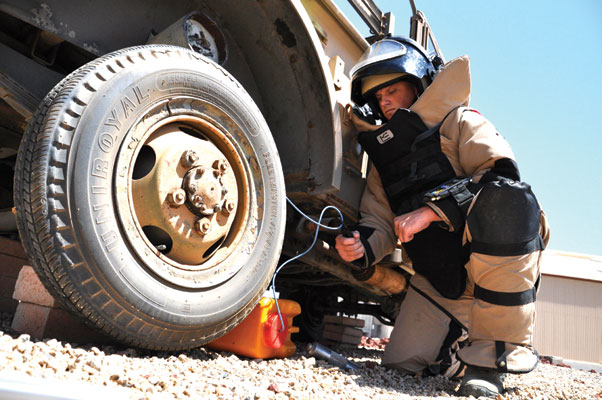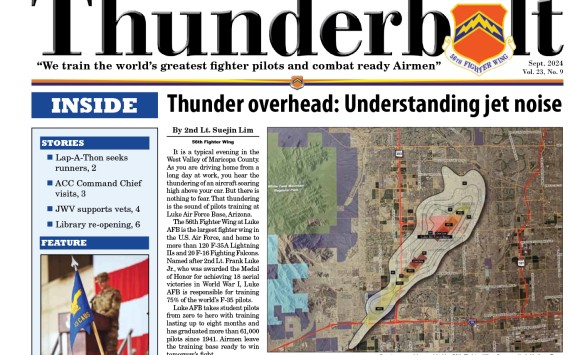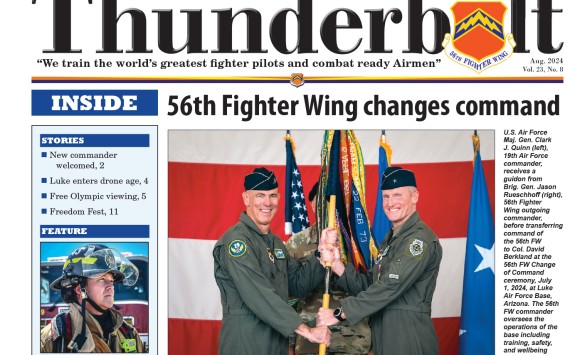LUKE AIR FORCE BASE, Ariz. — “Our primary mission at Luke is to support the pilot training mission,” said Senior Airman Kyle Lyon, 56th Civil Engineer Squadron Explosive Ordinance Squadron team member. “Whether it is a hung gun or a hung flair, we take care of it.”
In addition to supporting the flightline, EOD Airmen also provide aircraft support at the Barry M. Goldwater Range and Gila Bend Air Force Auxiliary Field in Southwest Arizona.
“We clear the target area that pilots use to drop munitions on,” Lyon said. “We also pick up ordinances that have duded, so range management can replace targets and pilots can continue their training mission. In the winter and fall, we also spend six weeks at the range clearing target practice areas.”
To become an EOD Airman, a candidate must complete the Air Force’s EOD preliminary course and Navy School EOD training. Once graduates arrive at Luke, Airmen get additional training on ordinances specifics to the base.
“We go over the different ordinances the aircraft support and use here,” Lyon said. “We train with crew chiefs on ordinances at load barn, and more experienced technicians in the shop ensure we are meeting quality standards.”
EOD Airmen provide operational and wartime support, and train on improvised explosive devices, chemical, nuclear, as well as unexploded ordinance threats. As part of EOD responsibilities, team members also help out in the local community.
“During election season, we support very important person missions for the president and first lady,” Lyon said. “Whenever they are going to events, anywhere around the world, we send a team to detect explosive hazards.”
Providing VIP support comes with benefits, but for Lyon the best part of the job is the bond of brotherhood it builds.
“I like the comradery the most about my job,” Lyon said. “We butt heads, but we get each other. And I like to blow up stuff.”
EOD Airmen build life long bonds completing some of the most dangerous missions in the Air Force. For Staff Sgt. Kim Daniel, 56th CES EOD team leader, having trust in training is important.
“Everybody’s form of dangerous is different,” Daniel said. “I’m very meticulous about things, and once I understand how things work, it becomes like second nature. I know it’s dangerous, but I’m already planning on how to proceed as safely as possible. I trust my training.”












